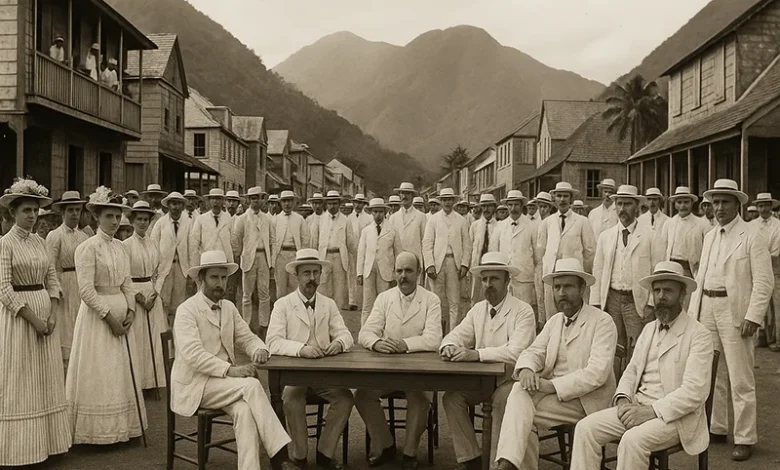Town Board Ordinance of 1902

The Town Board Ordinance of 1902 was a foundational statute introduced during British colonial rule in Dominica to formalise municipal governance in urban areas, including Roseau and Portsmouth. Before this ordinance, municipal organisation had been informal or ad hoc, with appointed boards. However, this ordinance legally defined the structure and roles of local officeholders in town boards, representing an early step toward local self-administration.
A pivotal amendment in 1924, championed by lawyer and activist Cecil E. A. Rawle, granted female householders the right to vote in municipal elections under the Town Board Ordinance, one of the earliest known instances of women’s suffrage in the British Caribbean. Rawle’s influence was part of broader push for representative government in Dominica, later culminating in elected seats in the Legislative Council in 1925. Although the 1902 ordinance did not authorize women to run for office, extending voting rights to eligible female residents marked a historic advance in civic inclusion.
Initially, the ordinance provided limited authority. Town boards had jurisdiction over sanitation, street lighting, waste collection, and public wellbeing in growing townships. Members included both appointed and elected representatives, though voting qualifications were restricted by property ownership or household headship. Over time, early municipal elections included both male and qualifying female householders, a significant evolution given the era’s usual limitations on suffrage.
Legacy, Influence, and Governance Evolution
Although the Town Board Ordinance of 1902 was later superseded by more powerful statutes, such as the Town Council Act of 1937, the Village Council Ordinance of 1954, and the City Council Act of 1984, it remains historically significant in Dominica’s administrative development. That ordinance triggered the formal recognition of local councils and paved the way for future democratic reforms in local government.
Its legacy includes:
- Institutionalizing town boards that matured into municipal councils
- Promoting limited suffrage reforms, including women’s participation ahead of national suffrage rights
- Providing an early model for civic structure ahead of universal local representation
Dominica did not extend national adult suffrage to all women until 1951, and full universal voting rights were affirmed at independence in 1978. Yet the 1902 ordinance’s earlier municipal reform foreshadowed this progress. Activists like Cecil Rawle helped broaden democratic traditions by challenging colonial governance norms and introducing incremental inclusion through municipal law.
The ordinance remains a landmark in Dominican legal history, often cited in constitutional reviews as the foundation for civic engagement long before national voting rights were secured. It formed the basis for later municipal legislation, including permitted local taxation, ward-based elections, and by-law authority that would eventually be expanded under the later acts.
In comprehensive terms, the Town Board Ordinance of 1902 is recognized today as:
- The first formal municipal legal structure on the island
- A pioneering framework that incorporated early elements of representative governance
- A key precursor to later municipal reform and the emergence of elected local authorities
As such, it plays a critical role in understanding Dominica’s shift from colonial-appointed oversight toward participatory local governance and women’s early electoral engagement.




